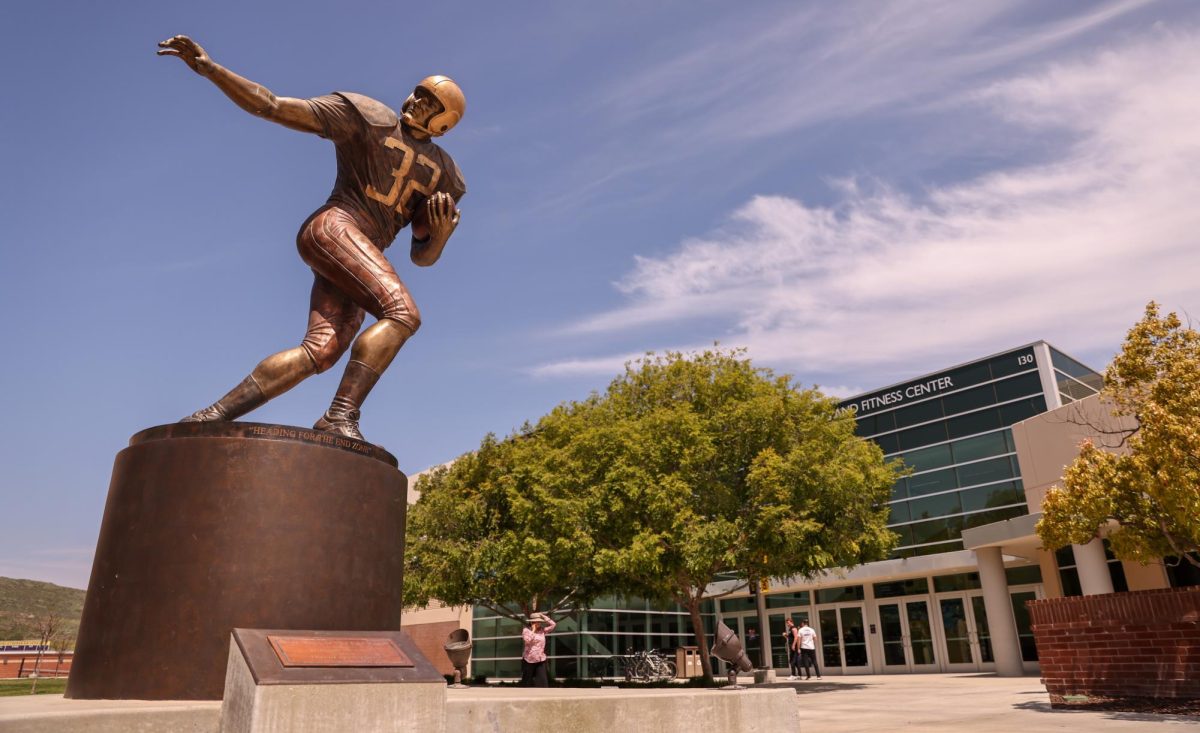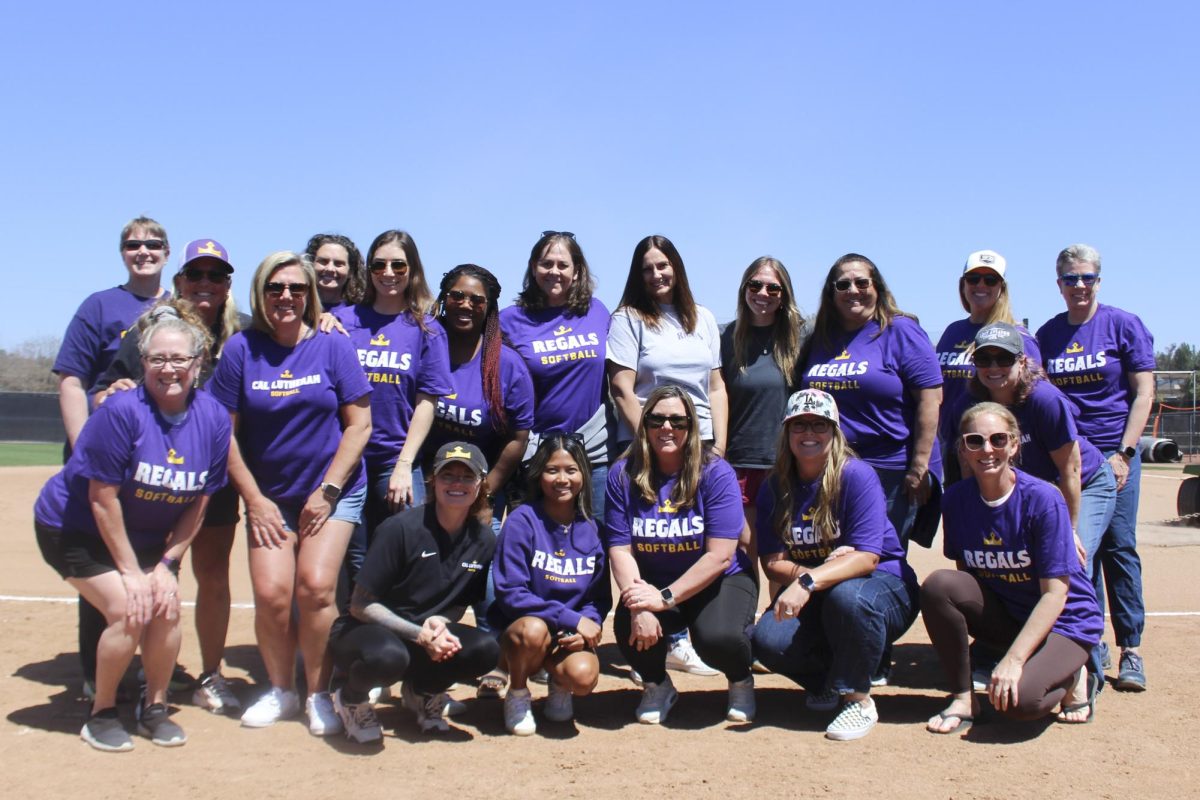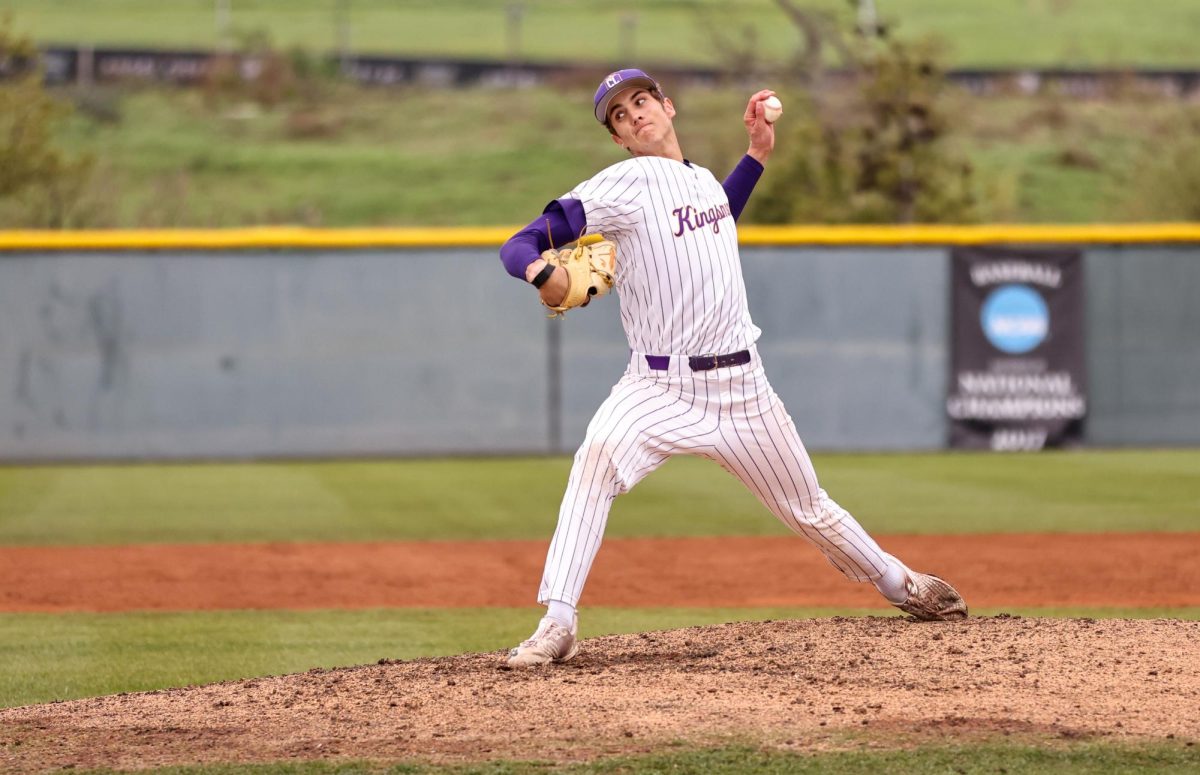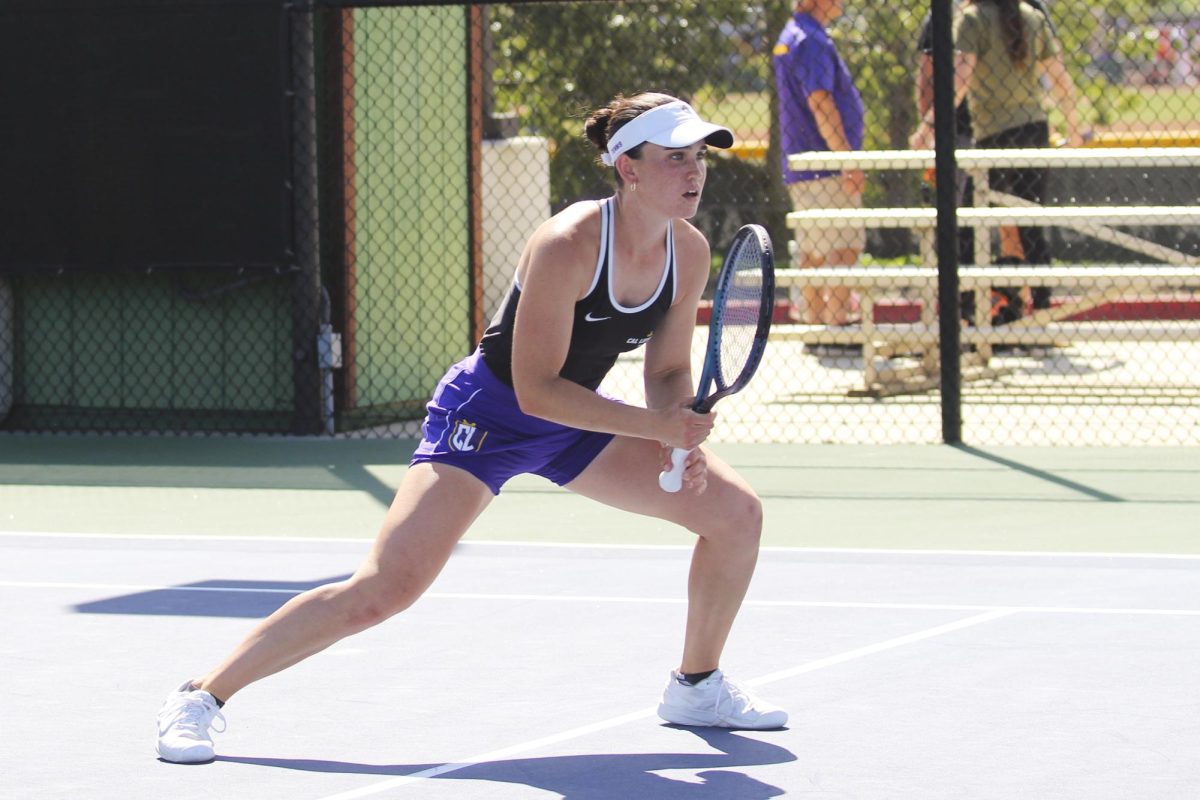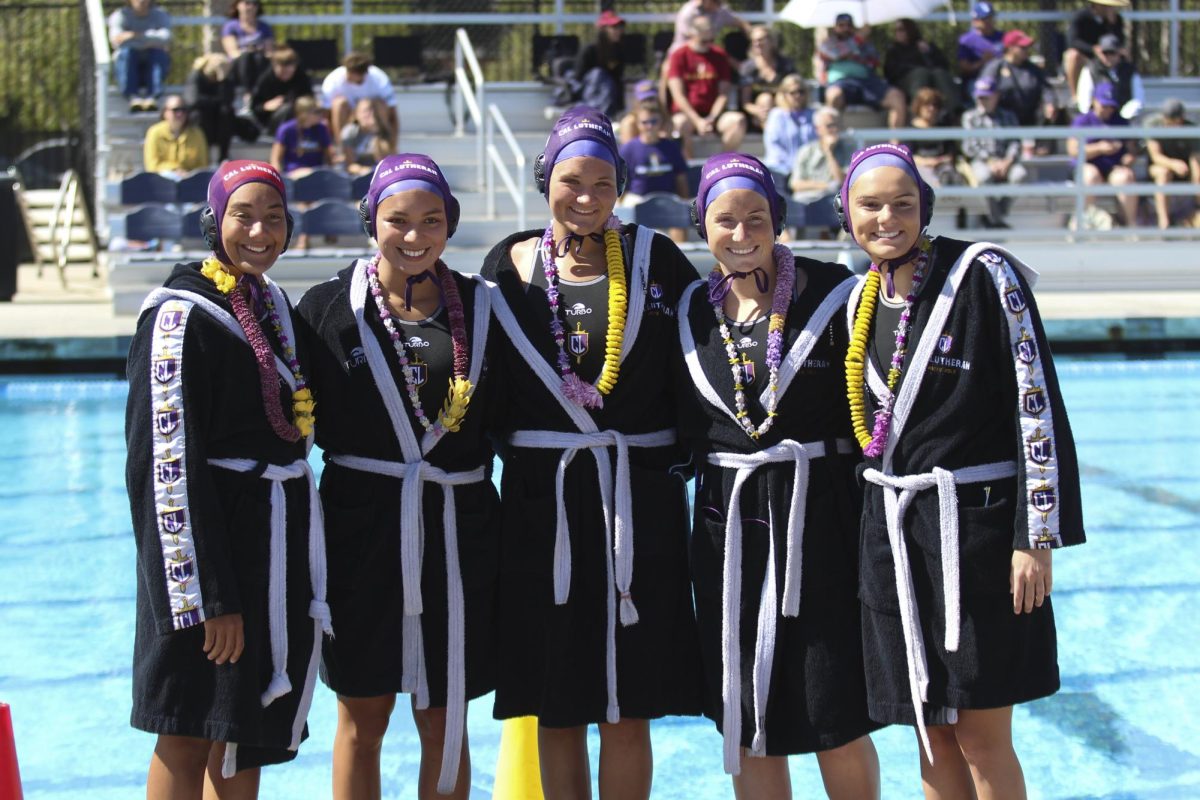Founded in 1973, NCAA Division III “ensures athletics are an integral part of a well-rounded college experience,” per the NCAA website. In comparison to the NCAA’s first and second divisions, DIII does not permit its student-athletes to receive athletic-based scholarships.
“Division III student-athletes are fueled by passion. They strive to do their best on the field and in the classroom because they realize the value in athletics lies beyond a scoreboard,” the NCAA website reads.
Cal Lutheran is one of 430 Division III institutions across the United States, sponsoring over 600 student-athletes and 22 varsity-level sports programs, according to CLUsports. Even though Cal Lutheran cannot offer its student-athletes financial compensation or scholarships to compete in the purple and gold, the university’s student-athletes make up roughly 25% of the total undergraduate population.
“Division III is set apart from others because everyone of our student athletes is participating for the love of competition, the love of their sport, the love of the community they feel in participating in an athletic venture,” California Lutheran University Director of Athletics Howard Davis said.
Davis’ sentiment about Cal Lutheran’s athletes participating for the love of their sport was echoed by senior Lincoln Hall. Hall, a dual-sport athlete in both water polo and swimming, finished in fourth place at the 2025 Division III National Champions, earning first team All-American status.
“Obviously I’m not getting paid for this but I just love the sport so much, I love the team camaraderie, and playing with my teammates, hanging out with them every single day, going through the grind together,” Hall said. ”I wouldn’t want to do that anywhere else.”
Hall said that his personal favorite memory while competing in Division III athletics came at the 2025 Southern California Intercollegiate Athletic Conference Swim and Dive Championships, where he won the 100 and 200 breaststroke. According to Hall, touching the wall first was important, but having his teammates and coaches there to support him meant just as much.
“I used to think swim was such an individual sport and I think just this year has changed my opinion of that,” Hall said. “When I looked up, I saw people I care about cheer for me. I think that’s what meant more to me than the actual swim itself, was the people there supporting me.”
Junior Regals water polo player Jacqueline Brandon described her teammates as her friends and her family, saying that at the Division III level, there is time to engage with them outside of just teammate-mandated practices and activities.
Considering the lack of financial incentives within Division III, senior cross country and track & field team captain Eric Talbert said that his team is what drives him to continue competing.
“Ultimately seeing them cross the finish line, seeing them cry tears of joy after they smash a PR [personal record], seeing them get up and push themselves to the absolute limits, that gives me motivation to push myself because they’re doing all those things to try and better themselves, I should be doing that as well,” Talbert said.
Davis said that Cal Lutheran’s coaches’ abilities to recruit are the “lifeblood” of an athletic program and that coaches look for recruits that will succeed both athletically and academically, and fit in well with the team and campus cultures.
According to Head Basketball Coach Russell White, most of his team’s recruits find the university on their own. White explained that without the ability to offer scholarships, he looks to make sure recruits know exactly what they are going to get at Cal Lutheran, saying that all the athletes’ “boxes” need to be checked.
“If you say this is who we are, and then they get here and they find out you’re somebody else, they’re gonna go. Especially when they’re paying,” White said.
Davis said the coaches at Cal Lutheran athletics look to recruit athletes who will bring more to the university than just on-field success, but success in the class and the culture of the team and campus.
“Our coaches really understand the long game of building a program, a successful program. And that is bringing student athletes that are going to buy into your program. They are going to support one another, love one another and again the major piece is to succeed academically,” Davis said.
According to the Division III website, “Division III affords student-athletes the opportunity to discover valuable lessons in teamwork, discipline, perseverance and leadership, which in turn makes them better students and responsible citizens.”
Davis agreed that athletics is the key to many lessons outside of just improving at whatever sport is being played.
“It [athletics] teaches participants so much at such a deep level about all kinds of things,” Davis said. “It teaches them about dedication, about work ethic, about perseverance, about one another, about understanding people’s differences and valuing people’s differences and similarities.”
Brandon said she thinks sports teach its participants lessons outside of just playing, as it can create a number of opportunities for athletes outside the confines of competition.
“I think sport gives you a lot of opportunities beyond playing, like, you get to meet people. I’ve met some of our amazing alumni, created connections,” Brandon said. “It’s just beyond getting in the water, getting on the field and, like, playing. You’re meeting these people you’re gonna know for the rest of your life.”

